
Inspired by a work by John Stevens from 1991, Mark Wastell developed this work merging narration and improvisation by transcribing the text from Steven's performance, preseanted here by an electroacoustic ensemble including Phil Durrant, Dominic Lash, Bertrand Denzler, Jennifer Allum &c, yielding an enveloping and fascinatingly mysterious piece presented in two versions.
In Stock
Quantity in Basket: None
Log In to use our Wish List
Shipping Weight: 3.00 units
EU & UK Customers:
Discogs.com can handle your VAT payments
So please order through Discogs
Sample The Album:
Jennifer Allum-violin
Douglas Benford-objects
Harry Broadbent-rhodes piano
Bertrand Denzler-tenor saxophone
Phil Durrant-modular synth
Phil Julian-electronics
Dominic Lash-double bass
Stewart Lee-narration
Graham McKeachan-double bass
Mark Wastell-tam tam, harmonium
Click an artist name above to see in-stock items for that artist.
Label: Confront
Catalog ID: core 14
Squidco Product Code: 29575
Format: CD
Condition: New
Released: 2020
Country: UK
Packaging: Cardboard Gatefold
Recorded at Holy Mountain Studios, in London, UK, on December 4th, 2017,by Callum Sadler.
"The origins of this piece date back to the 1st December 1991. I'd attended an all day concert at the Red Rose Theatre in Finsbury Park, London - a benefit gig for Terry Day - featuring dozens of musicians in various groupings throughout the afternoon and evening. One of those musicians was John Stevens. This was my first exposure to John and his music and the beginning of a fascination still very much part of my everyday. John performed three times that afternoon; with his Spontaneous Music Ensemble - comprising Nigel Coombes and Roger Smith later joined by Maggie Nicols and Phil Minton, in a trio with Larry Stabbins and Paul Rogers and in an unaccompanied role, reciting a text composed by himself. He gave no introduction or back story to the piece. It just existed as is. Gone in a few fleeting moments. A couple of years later I secured an audience recording of the concert made by Andy Isham. All of John's activity that day was on the recording and through repeated listening over the following two decades, I became very attached to the spoken word piece. Earlier this year I finally got around to transcribing the text, hoping that one day I'd be able to include it in a project. This little dream was enabled by Trestle Records and their generous offer to organise and record a session. Finally John's inspirational words can be heard again and influence others the way they did me, as a young man, twenty six years ago. (Mark Wastell, December 2017)
The One Day Band sessions are an ongoing series of improvisations hosted by Trestle Records. Musicians, sometimes meeting for the first time, are invited to collaborate on a record made in a single day. The idea is to create a supportive studio environment to facilitate the production of new spontaneous music."-Confront Recordings
"In June 2003, Mark Wastell congregated a group of musicians at the LMC Studios in Brixton, London for an open-form improvisation and recording session. The group included London-based associates Rhodri Davies, Benedict Drew, Graham Halliwell, Paul Hood, Mattin, and Nishide Takehiro along with visitors Tetuzi Akiyama, Michael Duch, Annette Krebs, and Andrea Neumann with instrumentation split between acoustic instruments, various modes of electronics and amplification, and laptops. Wastell recalls that "I hadn't been anticipating putting a larger group together. It was just luck that [during] that particular few days, there were a number of international musician friends visiting London. I saw the opportunity and jumped at the chance to organize a recording ... The same day, we played a concert in the evening, at a squat that Mattin had found in East London." What began as a chance encounter has, over the last 16 years, developed into an ongoing project Wastell has dubbed The Seen.
With a constantly revolving/evolving ensemble, both in membership and in instrumentation, Wastell has fostered a setting for a network of musicians, some of whom he has been working with for decades and others who he brings in for a specific performance. Over the course of two dozen concerts involving, to date, a pool of 80 musicians, he revels in changing things up for every meeting. One time, the group can be comprised of 5 double bass players and 5 laptop players, another it can be a string quintet along with two musicians playing analog electronics. Zithers, bowed banjo, and accordion sidle up against sax, trumpet, and violin, tam tam and harmonium, "resonators," amplified objects, and synths. Yet throughout, a clear collective sensibility prevails. David Toop, a frequent participant, puts the impetus for the strategy this way. "Maybe it lies in the desire to create a group that embodies the mystery and sureness of purpose that is part of the allure of groups that fascinate us (and Mark) ... Although the line-ups and instrumentation are always different there is a continuity and consistency which is almost suspicious, particularly since in my experience nothing is ever discussed, either before or after, and if Mark has any intentions he keeps them well hidden."
The Seen is a clear extension of Wastell's fascination with collective collaboration which he began in the early '90s along with an evolving community of musicians that he's worked with since then. In a PoD roundtable (Issue 28; April 2010), Wastell talked about this collective strategy. "I like the continuing challenge in the development of a group music, finding the identity and molding over time as your material changes and that of your colleagues." Working with that ever-broadening circle of musicians and building a shared collective language laid the initial foundation of the larger ensemble. He'd circled in on approaches toward improvisation centered on collective microscopic listening working with the trio IST, with Rhodri Davies and Simon Fell, as a member of pianist Chris Burn's Ensemble, and in collective groups like Assumed Possibilities (with Davies, Burn, and Phil Durrant), The Sealed Knot (with Davies and Burkhard Beins), Broken Consort (with Matt Davis and Davies), Open Trio (with Davis and Durrant), and a diverse collection of duo partnerships.
In the early 2000s, The Sealed Knot did a tour which they billed as "New London Silence meets Berlin Reductionism," and that appellation stuck. In his article "The Other Side of Silence" in the October 2005 issue of The Wire, Clive Bell talked about "New London Silence" with Wastell, Phil Durrant, and a number of others. In that article, Durrant weighed in that "For me the big thing is not a reduction in material and volume, it's a reduction in pace. The whole pulse slows down dramatically." By the time that The Seen first came together, those strategies had been absorbed and internalized and, as Durrant recently elucidated, "the style is still layered rather than 'moment to moment' improvised music but not reduced in the way the scene was 2003-2006ish. In many ways the 'compositional element' was always the line-ups." Paul Margree calls it out succinctly in his essay for the boxed set The Seen Archive: Volumes I-V, aptly stating that the music of The Seen is "Not necessarily 'quiet' music ..."
That idea of group music along with a dedication to self-determination is central to The Seen and the way that Wastell operates. He has, for the most part, arranged the gigs himself, booking venues, handling promotion. But most importantly, he chooses instrumentation and assembles the participants. And as one digs into recordings by the group, it is that attention to instrumentation that is fundamental to the sound of the group, even in its constant morphing. Wastell explains that "Most times, the start point is the instrumentation. I construct with the overall sound and textures foremost. Luckily, I'm able to draw from a staggering diverse group of musicians. London (the primary source) is blessed that way. I'll start with the concept, the 'sound,' then arrange the instrumentation, then consider who best to fill the chair. On the odd occasion, a particular musician may be visiting and I'll build a group around their potential. But that is a rarer example ... It's down to the ever shifting nature of the group. Yes, availability plays a large part. But mostly it's to do with the current project and how I see people fitting into the scheme."
It is the changeable aspect of the group that attracts its members. In varying the framework of ensemble size, mixture of acoustic and electronic instrumentation, and various pairings and contrasts of instruments and musicians, Wastell sets up active playing environments that both challenge the members to consider how to engage, while encouraging them to bear in mind the overall group sound. He acts more as instigator than leader, providing the simplest of instructions such as a sub-grouping to begin the piece or what order musicians are to enter and places full trust in the ensemble from there. There are never rehearsals beforehand and even during a run of 10 performances over the course of 2018, specific lineups are never repeated. That mutable balance of musicians with deep experience playing with each other and those introduced at the last minute is both part of the allure and part of the success of the group.
[...]
"-Michael Rosenstein, Point of Departure
Artist Biographies
• Show Bio for Jennifer Allum "Jennifer Allum is a London-based violinist specialising in experimental and improvised music." ^ Hide Bio for Jennifer Allum • Show Bio for Douglas Benford "Douglas Benford is an English musician, curator, producer and co-founder of Sprawl. He lives and works in London, UK. Benford has had many recorded releases under many guises: mainly as Si-cut.db, but also Radial Blend, Phoenix Jig, Pantunes Music & Media Form (via Douglas's own imprint Suburbs Of Hell), covering electronica/drum n' bass/ambient, then microsound, glitch, dub and lately acoustic improvisation. He's the leader of the Brenford Underground DRUM AND BASS MAHOOSIVE sOUNd SySteM. Benford has performed at various venues such as London's Tate Modern, The Roundhouse, Science Museum, Brentford's Watermans and Colchester's Art Centres as well as international festivals Synch, Mutek, Transmediale, and Bestival. The first SI-CUT.DB release was in 1991, as SIDE>>CUT.DB (with later moniker LOVE>>CUT.DB). As Si-cut.db, Benford collaborated with Stephan Mathieu, Benge, Saint Etienne, Andrew Weatherall, Marc Weiser of Rechenzentrum and Momus amongst others. In 1999, Si-cut.db was ranked in the top 200 of US College Radio acts. n 1996, Benford and Iris Garrelfs (German-born musician and photographer) founded and curated the London-based experimental music club Sprawl, described as 'underground playground and test tube for current sound'. Benford also runs the offshoot label Sprawl Imprint. Its regular events have become a benchmark of experimental, electronic music. Artists featured have included Kim Cascone, Scanner, Talvin Singh, Kaffe Matthews, Christian Fennesz, Hayley Newman and more. Other events include the Interplay Festivals, SonicRecycler, the Groundswell Festival at ICA, as well presenting Vladislav Delay and Rosy Parlane at a concert organised in conjunction with the Tate ModernŐs educational department and the Finnish Institute." ^ Hide Bio for Douglas Benford • Show Bio for Harry Broadbent Harry Broadbent is a UK pianist and keyboardist, known for the bands Kula Shaker, and The Seen. ^ Hide Bio for Harry Broadbent • Show Bio for Bertrand Denzler ^ Hide Bio for Bertrand Denzler • Show Bio for Phil Durrant "Phil Durrant. Born 1957; software synth/sampler, live electronics and acoustic violin. Phil Durrant studied classical violin and piano at the London College Of Music. Since 1977 he has been a freelance musician, improviser and composer. He has performed at festivals all over Europe, U.S.A and Canada and has had his music broadcast on radio and television in many countries. Current electronic projects include Ticklish, Secret Measures (with John Butcher), Lunge (with Gail Brand, Pat Thomas and Mark Sanders) and the international electronic orchestra, Mimeo. He also plays violin in Assumed Possibilities (with Chris Burn, Rhodri Davies and Mark Wastell), "Beinhaltung", a trio with Radu Malfatti and Thomas Lehn another trio with Berlin musicians, Burkhard Beins and Ignaz Schick, and the string quartet Quatuor Accorde, with Tony Wren, Charlotte Hug and Mark Wastell. Durrant has also played in the very influential trio with John Butcher and John Russell, as well as the Chris Burn Ensemble. During his career he has played with many creative and important musicians, including: Derek Bailey, Evan Parker, Grooverider, Shut up and Dance, John Zorn, Phil Minton, and Tom Cora. He has also been awarded various Arts Council grants to research and develop his use of electronics. Two current duo projects - at early 2001 - were: Durrant, violin and software synth/sampler with Wade Matthews, bass clarinet, alto flute; and Durrant software synth/sampler with Mark Sanders drums and sequenced samples. Phil Durrant has also been collaborating and composing music for a wide variety of choreographers. These include PLastic chill, In the face of a stranger and Deja deux with Maxine Doyle; Salome, Concrete and On stage with Susanne Thomas; Partial site, near view and Delay for five with Gill Clarke; Future perfekt with Ana Sanchez-Colberg; and Borderlander and Home zone with Sophia Lycouris. Salome, Concrete and Partial site, near view were site-specific and involved speaker systems in a number of different rooms. He recently wrote the music for a new play by Nick Sutton called Home movies." ^ Hide Bio for Phil Durrant • Show Bio for Phil Julian "Phil Julian is a UK based composer and improviser active since the late 1990's principally working with modular electronic devices and computers. Audio works by Julian (and under the Cheapmachines alias) have been published on labels including Entr'acte, Banned Production, The Tapeworm, Harbinger Sound, Confront Recordings, Conditional, Staalplaat (Open Circuit imprint), con-v, Beartown Records as well as numerous compilation appearances. He also runs the Authorised Version label. Julian has collaborated on remixes, recordings and performances with Tomas Korber, Michael Renkel, Jason Kahn, Daniel Jones, Kostis Kilymis, Tom Mudd, Angharad Davies, John Macedo, Dominic Lash, Dimitra Lazaridou-Chatzigoga, Andie Brown, Dale Cornish, Ryan Jordan, Maurizio Bianchi, Nihilist Assault Group, The New Blockaders and GX Jupitter-Larsen of The Haters as well as being a member of the improvised drone ensemble Signals with Mark Beazley and Chris Gowers and perfroming as part of Mark Wastell's improvising group The Seen." ^ Hide Bio for Phil Julian • Show Bio for Dominic Lash "Born Cambridge, England, in January 1980; played bass guitar since 1994; studied with Hugh Boyd and Pascha Milner and at Basstech (London) with Rob Burns, Terry Gregory and others. Played double bass since 2001; basically self taught, with grateful thanks to Simon H. Fell. First class BA in English Literature from Oxford University (2002). Received MA Composition from Oxford Brookes University in 2003, having studied with Paul Whitty, Ray Lee and others. Received PhD from Brunel University in 2010, having studied the work of Derek Bailey, Helmut Lachenmann and JH Prynne and been supervised by Richard Barrett and John Croft." ^ Hide Bio for Dominic Lash • Show Bio for Stewart Lee "Stewart Lee was born on April 5, 1968 in Wellington, Shropshire, England. He is known for his work on Stewart Lee's Comedy Vehicle (2009), This Morning with Richard Not Judy (1998) and Arthur Christmas (2011). He has been married to Bridget Christie since 2006. They have two children." ^ Hide Bio for Stewart Lee • Show Bio for Graham McKeachan Graham McKeachan is a UK bassist and improviser, known for The Seen. ^ Hide Bio for Graham McKeachan • Show Bio for Mark Wastell "Mark Wastell Born 1968; cello. Much of Mark Wastell's relationship with his chosen instrument is concentrated on the tactile, textural and sonic possibilities of both violoncello and bow. He is increasingly interested in working with extreme elements drawn from frequency, timbre and pitch. His early activity was consciously and subconsciously influenced by a variety of improvising musicians including John Stevens, Barry Guy, Phil Durrant and John Russell. Subsequent exposure to contemporary composers lead to a greater understanding and appreciation of the works written for strings by Feldman, Cage, Nono, Lachenmann and Sciarrino. The use of live electronics and music concrete by Tudor, Parmegiani, Xenakis and others was another important early influence. Wastell's current instrumental material primarily focuses on using abstract principles of space and texture - encompassing elements of new London silence, pro-instrument minimalism, new complexity and electro-acoustics. Because of the very nature of his chosen instrument, he tends to favour 'chamber' style ensembles and is a member of a number of regular groups: Mark Wastell has also performed with many other leading musicians including John Zorn, Keith Rowe, Peter Kowald, Hugh Davies, Roger Turner, Veryan Weston, Lol Coxhill, Mark Sanders, Axel Dorner, Hans Koch, Phil Minton, Max Eastley and Steve Beresford. As a soloist he has played at the Micro-classical Festival (London 1996), LMC Festival (London 2000) and the Huddersfield Contemporary Music Festival (2000). He has travelled extensively with various groups, performing on tour and at festivals in the USA, France, Spain, Italy, Germany, Sweden, Denmark and Greece. Other work includes the launch in 1996 of his own record label, Confront Recordings. Wastell is also joint co-ordinator of the concert venue All Angels, together with Rhodri Davies." ^ Hide Bio for Mark Wastell
7/7/2025
Have a better biography or biography source? Please Contact Us so that we can update this biography.
7/7/2025
Have a better biography or biography source? Please Contact Us so that we can update this biography.
Have a better biography or biography source? Please Contact Us so that we can update this biography.
7/7/2025
Have a better biography or biography source? Please Contact Us so that we can update this biography.
7/7/2025
Have a better biography or biography source? Please Contact Us so that we can update this biography.
7/7/2025
Have a better biography or biography source? Please Contact Us so that we can update this biography.
7/7/2025
Have a better biography or biography source? Please Contact Us so that we can update this biography.
7/7/2025
Have a better biography or biography source? Please Contact Us so that we can update this biography.
Have a better biography or biography source? Please Contact Us so that we can update this biography.
• Derek Bailey's Company - with, for example, Will Gaines, Simon H. Fell and Rhodri Davies
• Evan Parker's String Project, with Peter Cusack, Hugh Davies, Rhodri Davies, Phil Durrant, John Edwards, Kaffe Matthews, Marcio Mattos, John Russell
• Assumed possibilities, with Chris Burn, Rhodri Davies and Phil Durrant
• The Sealed Knot, with Burkhard Beins and Rhodri Davies
• Necessaire with Alessandro Bosetti, Ignaz Schick and Burkhard Beins
• IST with Simon Fell and Rhodri Davies
• Quatuor Accorde with Tony Wren, Phil Durrant and Charlotte Hug
• Broken Concort, a duo with Rhodri Davies
7/7/2025
Have a better biography or biography source? Please Contact Us so that we can update this biography.
Track Listing:
1. For Sake Of Joy Of Study Of Oneself Together : Version I 26:45
2. For Sake Of Joy Of Study Of Oneself Together : Version II 29:36
Improvised Music
Free Improvisation
Electro-Acoustic
Electro-Acoustic Improv
Spoken Word
London & UK Improv & Related Scenes
European Improvisation, Composition and Experimental Forms
Staff Picks & Recommended Items
Search for other titles on the label:
Confront.


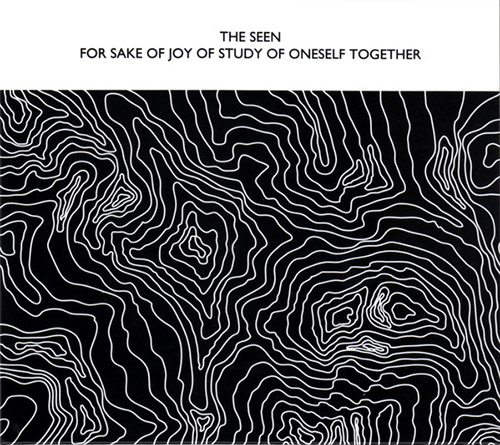

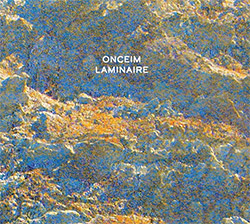
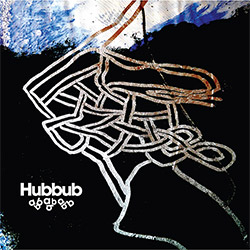
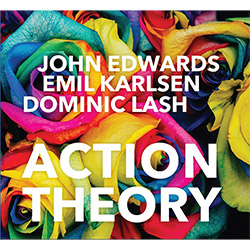

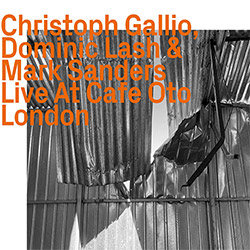
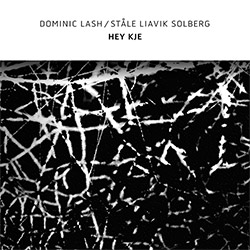
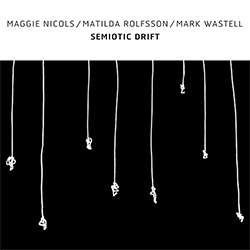
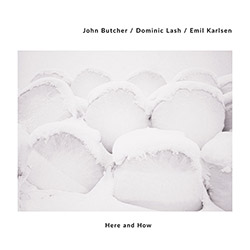
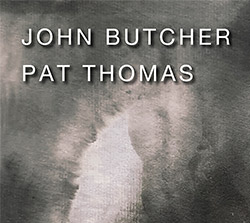
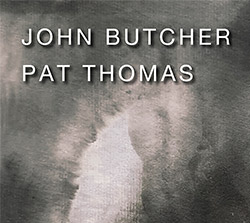

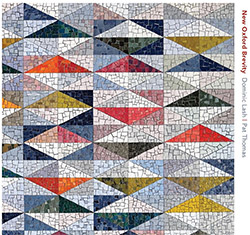
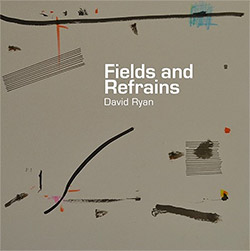

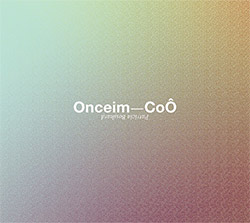


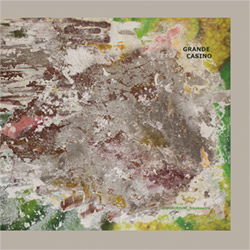



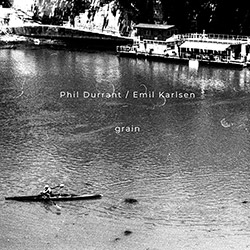
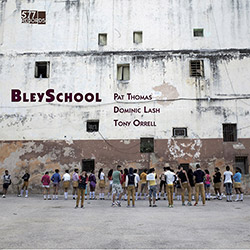
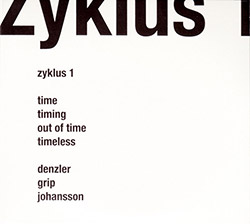
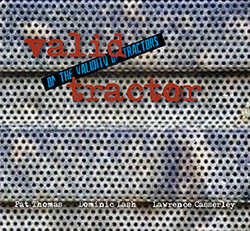






![+DOG+: The Light Of Our Lives [2 CDs]](https://www.teuthida.com/productImages/misc4/36009.jpg)


![Parker, Evan / Jean-Marc Foussat: Insolence [VINYL]](https://www.teuthida.com/productImages/misc4/36398.jpg)










![Deupree, Jerome / Sylvie Courvoisier / Lester St. Louis / Joe Morris: Canyon [2 CDs]](https://www.teuthida.com/productImages/misc4/36404.jpg)


![Eternities: Rides Again [CASSETTE]](https://www.teuthida.com/productImages/misc4/36247.jpg)

![Lopez, Francisco: Untitled (2021-2022) [2 CDs]](https://www.teuthida.com/productImages/misc4/36438.jpg)




![Eventless Plot | Haarvol: The Subliminal Paths [CASSETTE + DOWNLOAD]](https://www.teuthida.com/productImages/misc4/36232.jpg)







![Eventless Plot | Francesco Covarino: Methexis [CASSETTE + DOWNLOAD]](https://www.teuthida.com/productImages/misc4/36231.jpg)



![Das B (Mazen Kerbaj / Mike Majkowski / Magda Mayas / Tony Buck): Love [VINYL]](https://www.teuthida.com/productImages/misc4/36329.jpg)



![Hemphill Stringtet, The: Plays the Music of Julius Hemphill [VINYL]](https://www.teuthida.com/productImages/misc4/36409.jpg)









![Money : Money 2 [2 CDs]](https://www.teuthida.com/productImages/misc4/35894.jpg)




![Klinga, Erik: Elusive Shimmer [VINYL]](https://www.teuthida.com/productImages/misc4/36258.jpg)
![CHANGES TO blind (Phil Zampino): Volume 9 - I Wave on a Fine Vile Mist [CD + DOWNLOAD]](https://www.teuthida.com/productImages/misc4/36061.jpg)

![Wallmart / Rubbish: Asset Protection [split CD]](https://www.teuthida.com/productImages/misc4/35900.jpg)


![+Dog+: The Family Music Book Vol. 5 [2 CDs]](https://www.teuthida.com/productImages/misc4/35897.jpg)
![Kuvveti, Deli : Kuslar Soyledi [CASSETTE w/ DOWNLOAD]](https://www.teuthida.com/productImages/misc4/36107.jpg)

![Nakayama, Tetsuya: Edo Wan [CASSETTE w/ DOWNLOAD]](https://www.teuthida.com/productImages/misc4/36105.jpg)

![Brown, Dan / Dan Reynolds: Live At The Grange Hall [unauthorized][CASSETTE]](https://www.teuthida.com/productImages/misc4/36245.jpg)







![Palestine, Charlemagne / Seppe Gebruers: Beyondddddd The Notessssss [VINYL]](https://www.teuthida.com/productImages/misc4/36206.jpg)
![Palestine, Charlemagne / Seppe Gebruers: Beyondddddd The Notessssss [NEON GREEN VINYL]](https://www.teuthida.com/productImages/misc4/36207.jpg)

![Laubrock, Ingrid: Purposing The Air [2 CDs]](https://www.teuthida.com/productImages/misc4/35639.jpg)

![Yoko, Ono / The Great Learning Orchestra: Selected Recordings From Grapefruit [2 CDs]](https://www.teuthida.com/productImages/misc4/35841.jpg)









![Zorn, John / JACK Quartet: The Complete String Quartets [2 CDs]](https://www.teuthida.com/productImages/misc4/35609.jpg)

![Lonsdale, Eden: Dawnings [2 CDs]](https://www.teuthida.com/productImages/misc4/35480.jpg)



![Sorry For Laughing (G. Whitlow / M. Bates / Dave-Id / E. Ka-Spel): Rain Flowers [2 CDS]](https://www.teuthida.com/productImages/misc4/35985.jpg)

![Rolando, Tommaso / Andy Moor : Biscotti [CASSETTE w/ DOWNLOADS]](https://www.teuthida.com/productImages/misc4/36106.jpg)


![Electric Bird Noise / Derek Roddy: 8-10-22 [CD EP]](https://www.teuthida.com/productImages/misc4/35970.jpg)








![Elephant9 : Mythical River [VINYL]](https://www.teuthida.com/productImages/misc4/34624.jpg)



![Elephant9 with Terje Rypdal: Catching Fire [VINYL 2 LPs]](https://www.teuthida.com/productImages/misc4/35355.jpg)
![Deerlady (Obomsawin, Mali / Magdalena Abrego): Greatest Hits [VINYL]](https://www.teuthida.com/productImages/misc4/34876.jpg)







![Surplus 1980: Illusion of Consistency [CD]](https://www.teuthida.com/productImages/misc4/35069.jpg)
![Staiano, Moe: Away Towards the Light [VINYL + DOWNLOAD]](https://www.teuthida.com/productImages/misc4/35037.jpg)
![Coley, Byron: Dating Tips for Touring Bands [VINYL]](https://www.teuthida.com/productImages/misc4/17906.jpg)

![Lost Kisses: My Life is Sad & Funny [DVD]](https://www.teuthida.com/productImages/misc4/lostKissesDVD.jpg)